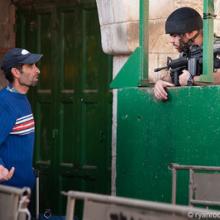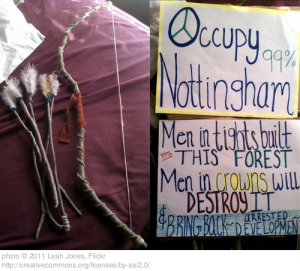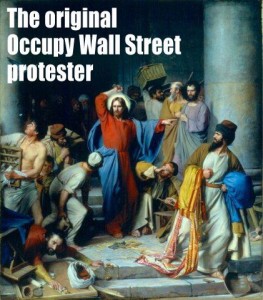occupation
“We had a prayer meeting [Monday] morning with dozens and dozens of people from all different traditions, from bishops to people sitting in the pews,” Cannon told Sojourners. “We’ll have another prayer gathering on Wednesday morning. We’re grieving, we’re lamenting, and we’re also working really hard.”
Historically, people love to opine on power. Whether it’s John Dalberg-Acton’s “Power tends to corrupt, and absolute power corrupts absolutely,” or Kanye West’s “No one man should have all that power,” the concept of concentrated power is taught as something to fear.
The images of civilian deaths and escalating violence in Israel and Palestine are heartbreaking. As this moral, political, and humanitarian catastrophe continues, we must urge our elected leaders to call for an immediate cessation of the current wave of violence, while also building the political will to interrogate the root causes of the crisis.
WHITE HOUSE Chief of Staff Denis McDonough told an audience this spring that “an occupation that has lasted for almost 50 years must end, and the Palestinian people must have the right to live in and govern themselves in their own sovereign state.”
McDonough decried the illegal construction of settlements in Palestinian territory, under Israeli Prime Minister Benjamin Netanyahu and his predecessors, as intentionally seeking to divide Palestinian communities. He added, “like every administration since President Johnson, we will continue to oppose Israeli settlement activity since it undermines the prospects for peace.”
But many activists refuse to continue to merely decry the occupation, year after year, decade after decade, while facts on the ground worsen and a just peace grows seemingly more elusive. For these activists—and they include many U.S. churches, peace groups, and humanitarian organizations—the time has come to put teeth into efforts to end Israel’s occupation of Palestinian territory and thereby impel progress toward a just peace in the region.
The Presbyterian Church (U.S.A.) has been debating various divestment measures since 2004, and last year the denomination voted to divest from three companies that supply equipment used in the occupation of Palestinian territory.
Saturday marked the third time since Israel began military operations in Gaza on July 8 that I let my voice be heard. I stood and marched alongside some 20,000 other individuals that like me have become utterly disgusted by what is unfolding in the Middle East.
A cease-fire has been struck, but as of yesterday, at least 1,800 Palestinians, most of whom are civilians, have been killed and nearly 7,000 have been wounded. Another 200,000 have been displaced in a territory whose infrastructure is now in ruins with mass power and water outages.
Despite the horrific events that have happened halfway across the world, the protest last Saturday, which took place at the White House, was a beautiful sight. Among the 20,000 protesters were Muslims, Jews, and Christians. There were blacks, whites, Arabs, Asians, and Latinos. There were women and men, both young and old, who had come from cities like Chicago, Tampa, Baltimore, and Boston. Many barriers were broken as we stood and marched in solidarity with the people of Palestine.
There were times when my heart was completely broken as I saw signs with photos of dead and mutilated bodies and others that listed the names and ages of children who had been killed by Israeli airstrikes. But in those same moments I would look across the sea of protesters draped in black, white, green, and red yelling phrases such as "Free, Free Palestine!" and "Stop the killing, stop the hate!" and I would once again become a prisoner of hope. I take refuge in the rock that is Christ Jesus. I know my God stands with those being oppressed, with those seeking justice and peace. I know my voice and prayers along with millions of others around the world will be heard.
Although I am pro-Palestine, that does not make me pro-Hamas or anti-Israel. I recognize and condemn Hamas's involvement in the failed peace talks and inability to find solutions. I also mourn equally for the loss of life on the Israeli side. However, despite the part Hamas has played in all of this I do not find Israel's actions to be justified. So I march.
The first thing that visitors and volunteers see at the Tent of Nations just outside of Bethlehem is a large stone on which are written the words, “We refuse to be enemies.” As Israeli settlements draw ever closer to their land and the Israeli Defense Forces destroy their orchards, the Nassar family continues to pay a heavy price in their practice of Jesus’ teaching, “Love your enemies, do good to those who hate you, bless those who curse you, pray for those who abuse you (Luke 6:27-28).”
The Nassars refuse to divide the world into friends and enemies, challenging the rest of us to do the same.
As a Christian, I was raised to be pro-Israel. Since going to the region many times, I’ve become pro-Palestinian and pro-peace, too, which has led me to explore the narratives of Palestinians as well as Israelis. I grieve the deaths in both Israel and Palestine. Every human life has extraordinary value. The loss of even one life is a loss to all of us.
THE ULTIMATE BRAVERY might well be the courage to forgive one’s enemies and hold on to hope.
Nelson Mandela famously emerged from 27 years in prison as a reconciler and uniter, somehow free from bitterness and hatred. He was able to put into practice Jesus’ call to love our enemies—and thus became the father of the new South Africa.
Far from the upper echelons of power and fame, forgiving our enemies can be a difficult task, since “enemies,” by their very definition, aren’t easy to love. But in places of oppression, occupation, and routine violence, it’s even harder.
Take, for example, the story of a young man named Yousef Bashir. He grew up in the Gaza Strip, near an Israeli settlement known as Kfar Darom. In 2000, Palestinians rose up in protest against the Israeli occupation in what became known as the Second Intifada. In response, Israeli soldiers came to Yousef’s house and told his family to leave.
His father had dedicated his life to teaching Yousef and his brothers “how to coexist with the Israelis,” Yousef explained over lunch in Philadelphia early this winter, and he insisted on staying in their long-time family home. As a result, Yousef said, Israeli soldiers moved into the Bashir family’s house when he was 11 years old. They occupied the house until he was 15.

Photo by Ryan Rodrick Beiler, http://bit.ly/H8JG9C
Two weeks ago, the Israeli ambassador to the United States, Michael Oren, claimed in an article in The Wall Street Journal that the exodus of Palestinian Christians from the West Bank and Gaza is the fault of Palestinian Muslims. The article was full of inaccuracies and even lies, and Palestinian Christians responded with anger and disgust. The Wall Street Journal then featured some of these responses.
This is a serious issue for Palestinian Christians. We are not saying that radical Islam is not a threat. We are not denying that there are some struggles that we face as a minority. We are not denying that there are some incidences in which Christians were attacked by radical Muslims, like in the death of Rami Ayyad in Gaza.
What we are saying, is that for us, the real issue and the core of our struggles is the Israeli occupation.

The Rev. John Helmiere, who was beaten by police during a nonviolent protest in December. Via http://bit.ly/vP6XVT.
Amidst the recent police violence in Oakland and the sure temptation of some protestors to resort to violence, I wrote this little reflection inviting all Occupiers to a renewed commitment to nonviolence.
There is a verse in the Bible that says, “Our battle is not against flesh and blood but against the principalities and powers of this dark world.” It is a reminder that there are people behind oppressive structures — people who laugh and cry and bleed just like everyone else — and those people are not the enemies, but the systems are.
I was reminded of this when I went into Bank of America on Move Your Money Day, and transferred my money to the non-profit credit union here in Philadelphia. As I went into the bank, I saw the smiling faces of Bank of America tellers who have become friends over the past decade. When I told them I was closing my account, one of the women asked jokingly, “You don’t like us anymore?” At first my heart sunk, but then I said, “No way, I love the heck out of all of you. I just don’t like the values of the bank you work for.” To my surprise, they all smiled. In fact they may not like the values of the bank they work for either. Even though I’ll be leaving Bank of America, I’m hoping to stay in touch with my friends there. I may even take them some coffees next week, which I’ll charge on my new credit union debit card.
It is always tempting to demonize people and humanize corporations. It’s easy to forget that we are up against something bigger than flesh and blood people. And it’s particularly easy to forget that people are not the enemy when people are shooting pepper spray in your face.
I love seeing who is chosen as TIME Magazine’s Person of the Year.
But sometimes TIME's honoree is not just a “Person.” Sometimes it’s “Persons” or even a thing.
Sometimes it’s the biggest news story of the year. Sometimes it encapsulates the zeitgeist, global urgings, or our collective mood.
This time around, it’s all of those things: A person, a group, a zeitgeist, a news story.
According to TIME, 2011 is the year of “The Protester.”
There has been a lot of anger levied at the very wealthy since the Occupy movement began back in September. There is no doubt that much of this anger is justified – righteous indignation, if you will.
The ways that people have become extremely wealthy have often been corrupt or immoral, whether or not they are technically "legal." Part of the reason that the Occupy movement sprang up was because people felt that there were different rules for "us and them." People who lost millions of dollars in what was effectively high-stakes gambling were pardoned with little more than a slap on the wrist, while regular families lost everything in a crisis they had no hand in.
As I say, there has been, and still is, much anger. But out of that anger must come something new, something tangible and real.

A Palestinian man is questioned at an Israeli military checkpoint in the West Bank. By Ryan Roderick Beiler http://bit.ly/sf1Pgt
A change is taking place in how evangelicals are looking at the Middle East.
Many evangelicals, who were discouraged by the failed prophecies and the “mood of doom” that dominated the evangelical church in the second half of the 20th century, are rediscovering that the gospel also speaks powerfully to issues of peace, justice, and reconciliation.
Books about the end times, such as those written by Tim LaHaye and Hal Lindsey, no longer dominate the bookshops, and people are being challenged by writings that focuses on the here and now, instead of the there and then!
In particular, the evangelical church typically has looked at the Middle East through the eyes of prophecy, leaning towards an unconditional support for Israel. Evangelicals in the West cheered the creation of the State of Israel in 1948 and the subsequent wars, believing them to be signs of the second coming of Christ—all the while neglecting the impact these events had on real people in the Middle East, specifically on Palestinians, and especially on the Palestinian Church.
The irony for Palestinian Christians is that evangelicals, with their over-emphasis on prophecy, have lost the capacity of being prophetic!
One of the highlights of the fall for me was undertaking a kind of Occupy Tourism. I was spending most of my time on the move, working to build the broad coalition that eventually won at least a temporary victory against the proposed Keystone XL pipeline from the tar sands of Alberta. In almost every city I visited, I tried to stop by the local encampment, in part because Occupiers were among our most reliable allies, and in part because it was so much fun.
I’ve gotten to speak through the human microphone in lower Manhattan and tour the D.C. campsite just a few blocks from the White House. But I’ve also gotten to sign the copies of my books in the library tent at Occupy Boston (a quiet tent, staffed by honest-to-God librarians from Boston Public Library, with everything arranged by subject). I even made it to foreign occupations—standing beneath a giant stone lion in the grand Vancouver encampment. Happiest occupation goes to San Luis Obispo, California, where I got a hug from a fellow with a huge “Free Hugs” sign. The most chic, not surprising, was Santa Fe, New Mexico, where they arranged not only a campfire for my talk, but a rising full moon in the desert sky.

With the opening of the G20 Summit in Cannes, France today, an idea that's been around for awhile is in the news again and gaining more attention as a result of the #OWS movement: The so-called "Robin Hood tax," a minimal tax on all financial transactions with the resulting revenue dedicated to anti-poverty programs....Archbishop of Canterbury Rowan Williams, in his response to the occupation of St. Paul's Cathedral in London, endorsed the Vatican proposals. Williams observed that "people are frustrated beyond measure at what they see as the disastrous effects of global capitalism," and urged a full debate on "a Financial Transaction Tax
Finally, as President Obama has announced, this American war will soon be over, with most of the 44,000 American troops still in Iraq coming home in time to be with their families for Christmas.
The initial feelings that rushed over me after hearing the White House announcement were of deep relief. But then they turned to deep sadness over the terrible cost of a war that was, from the beginning, wrong; intellectually, politically, strategically and, above all, morally wrong.
The War in Iraq was fundamentally a war of choice, and it was the wrong choice.

Because this week -- months after the Arab Spring, and after weeks of the growing Wall Street Occupation -- well, in this climate of discontent and dissent as we all begin to wake from our consumer induced coma to see how multi-national corporations control so much more than we can imagine, in a season when tyrants are being over thrown, I simply could not preach a sermon in which I say that God is like an angry murderous slave owning king. Maybe there is a way of finding good news in that but I just couldn't do it.
Bold leadership means that Mayor Bloomberg should do what he can to allow these protests to continue, even if he doesn't agree with them. As an elected official, it is essential that the mayor find a way to protect demonstrators' free speech and right to assemble.
The freedom to protest is one of the things that has made this country great and its abridgement is an affront to us all.
You have awakened the sleeping giant, too long dormant, but ever present, deep in the American democratic spirit. You have given voice and space to the unspoken feelings of countless others about something that has gone terribly wrong in our society. And you have sparked a flame from the embers of both frustration and hope that have been building, steadily, in the hearts of so many of us for quite some time.
Throughout history, often it has been left to the youth of a society to do that, and you boldly have stepped into the role of the emerging generation, which sometimes means saying and doing what others only think. You have articulated, loudly and clearly, the internal monologue of a nation.







